HOLY Scripture
“ALL scripture is inspired by God.. !
All scripture is given by inspiration of God..
All Scripture is breathed out by God..
All Scripture is God-breathed..
2 Timothy 3:16a
How does God communicate with man?
The Doctrine of Scripture or the Doctrine of the Bible stakes claim to all that is HOLY in the writings of God.
- Does Scripture have an ‘other’ holiness?
- Is the Word of God in writing true?
What is Holy?
We began this series on Doctrine appropriately with God’s Holiness.
Nor a son of man, that He would change His mind..
Holy, holy, holy is the Lord God! Other! Separate of man and above all His creation.
God is God and we are not.
Is the Bible Holy?
Christians call it, “THE HOLY BIBLE,” but what does that mean?
Now I ask you, my fellow believer and follower of Christ Jesus,
What authority should the Bible have in the lives of disciples of the true doctrines of God?
We have already defined holiness as separate, apart, and therefore sacred and as God speaks, an awful thing! Now I must define our commonly used terms addressing the holiness of God’s written word, the Bible or Scripture.
What is Scripture?
“It is written..” – כָּתַב
The word means “writing.”
In the Old Testament it occurs in the King James Version only once, “the scripture of truth,” in Da 10:21, where it is more correctly rendered in the Revised Version (British and American), “the writing of truth.” The reference is not to Holy Scripture, but to the book in which are inscribed God’s purposes.
In the New Testament, “scripture” and “scriptures” stand regularly for the Old Testament sacred books regarded as “inspired” (2Ti 3:16), “the oracles of God” (Ro 3:2).
International Standard Bible Encyclopaedia
And in each and every book of the Bible we must hold sacred that:
- IF ‘it is written’ as God’s spoken word,
- THEN we must regard it as truth – God’s truth revealed in the written word.
כְּתָב
אֲבָל֙ אַגִּ֣יד לְךָ֔ אֶת־הָרָשׁ֥וּם בִּכְתָ֖ב אֱמֶ֑ת וְאֵ֨ין אֶחָ֜ד מִתְחַזֵּ֤ק עִמִּי֙ עַל־אֵ֔לֶּה כִּ֥י אִם־מִיכָאֵ֖ל שַׂרְכֶֽם׃ פ
Daniel 10:21 WLC
You’ve often read scripture such as:
- .. as it is written in the Book of the Law of Moses..
- .. it is written in the Book of Jashar..
- “Celebrate the Passover to the LORD your God as it is written in this Book of the Covenant.”
- “It is written in the Prophets..
- “For it is written in the book of Psalms..
OR of specific scriptures.
.. as it is written:
Romans 3:10 NASB20 referring to verses in the Psalms
“THERE IS NO RIGHTEOUS PERSON, NOT EVEN ONE..
- Scripture is the written truth of God revealed to man.

The Jews chosen by the LORD God lived by Scripture (or at least they were called to live by the word of God through the Law and the Prophets).
“It is written..” – γράφω
The first mention of Scripture in the Gospels of the New Testament is by the Person of Christ Jesus!
After the Lord had been in the wilderness for forty days, the Messiah Jesus answers Satan’s temptation by applying Scripture written from the wilderness testing of Moses and Israel.
Matthew 4:
Then Jesus was led up by the Spirit into the wilderness to be tempted by the devil. And after He had fasted for forty days and forty nights, He then became hungry. And the tempter came and said to Him, “If You are the Son of God, command that these stones become bread.”
4 But He answered and said, “It is written:
γράφω – graphō
‘Man shall not live on bread alone, but on every word that comes out of the mouth of God.’”
Gospel of Matthew 4:4 NASB
(Do you think Christians might want to take heed to how Jesus replies to the temptation of Satan in the wilderness?) ‘MAN SHALL LIVE ON EVERY WORD THAT COMES OUT OF THE MOUTH OF GOD..’
JESUS REITERATES THE AUTHORITY OF SCRIPTURE!
So He humbled you, allowed you to hunger, and fed you with manna which you did not know nor did your fathers know, that He might make you know that man shall not live by bread alone; but man lives by every word that proceeds from the mouth of the Lord. - Deuteronomy 8:3
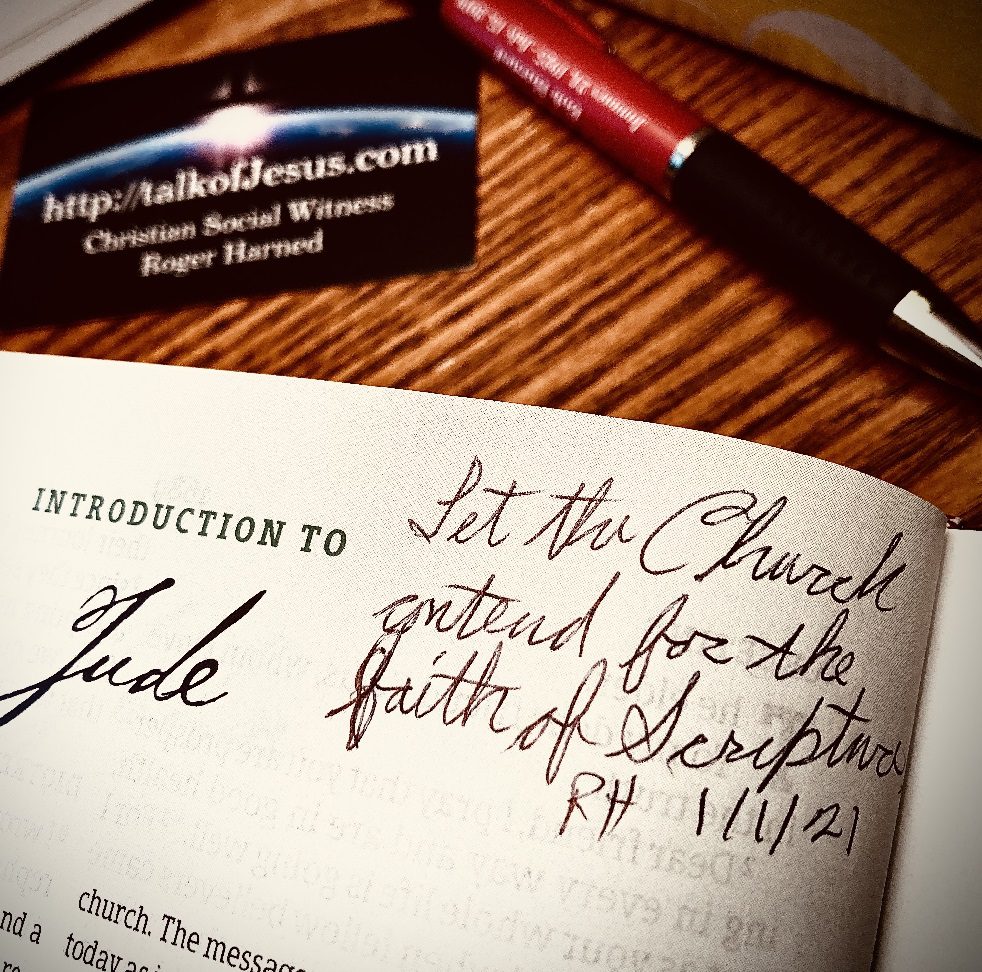
The New Testament on Scripture
γραφή – graphē
- a writing, thing written
- the Scripture, used to denote either the book itself, or its contents
- a certain portion or section of the Holy Scripture
The KJV translates Strong’s G1124 in the following manner: scripture (51x). from G1125; a document, γράφω – graphō [as we have defined above ‘it is written’ ] which occurs 192 times in 181 verses in the mgnt Greek.
A few examples of holy scripture
- Then He opened their minds to understand the Scriptures. – Luke 24:45
- You examine the Scriptures because you think that in them you have eternal life; and it is those very Scriptures that testify about Me; and yet you are unwilling to come to Me so that you may have life.– John 5:39-40
- For whatever was written in earlier times was written for our instruction, so that through perseverance and the encouragement of the Scriptures we might have hope. –Romans 15:4
All Scripture is inspired by God and beneficial for teaching, for rebuke, for correction, for training in righteousness so that the man or woman of God may be fully capable, equipped for every good work.
2 Timothy 3:16-17 NASB20
INSPIRED BY GOD! ALL Scripture (not just a verse or two to our liking). Scripture is HOLY, writings other than the ordinary books not spoken by God — books not written by the LORD speaking to a man.
The BIBLE is HOLY!
What is the Bible?
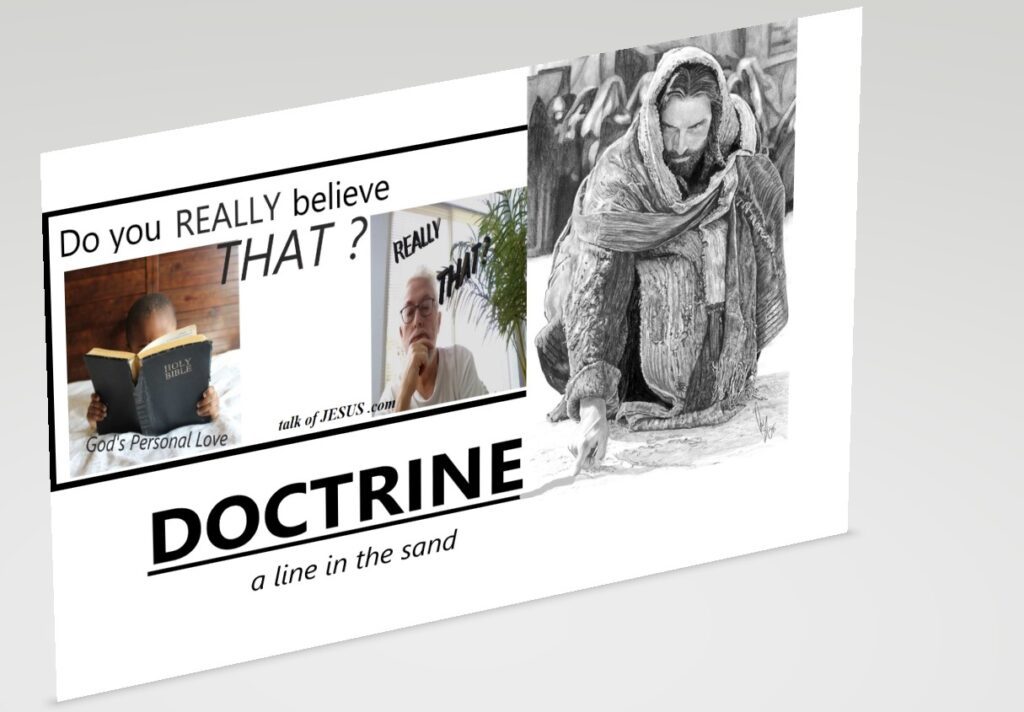
Again, the necessity of defining what ANYONE means where referring to “THE BIBLE.”
NOT ALL BIBLE’s are alike.
First, What is NOT the Bible
(AND therefore, NOT the HOLY Word of GOD.)
- The Quran is not the Bible.
- The Book of Mormon is not the Bible. [See: Cult Resources]
- The Complete Tanakh (*with its 24 Hebrew books) is an incomplete Bible.
- *The 24 Hebrew books are the same as the 39 Books of the Old Testament; the difference is in the way they are divided.
- Some *Additional Books in Roman Catholic and other Bibles include writings which are helpful, but NOT the inspired Word of God.
- The word Apocrypha means “hidden.”
- Gnostic Books (& gospels) which some *claim as part of the Bible oppose the Holy Scriptures and Word of God.
- *The term apocryphal is also applied to other books that are New Testament forgeries. An example of this would be the Gospel of Thomas, which claims to have been written by Jesus’ disciple Thomas. The book, however is a forgery.
- Some contemporary ‘translations’ of the Bible are *biased against true Scripture and do NOT actually translate Scripture from the original Hebrew and Greek.
- *Examples of Anti-Trinitarian bias of the NWT (New World Translation) of the Jehovah Witnesses cult non-secure links to authoritative research by Bruce M. Metzger from Christianity Today available.
The BIBLE
I will not go into detail here concerning the Canon of Scripture and historical affirmations of the Authority of God’s word.
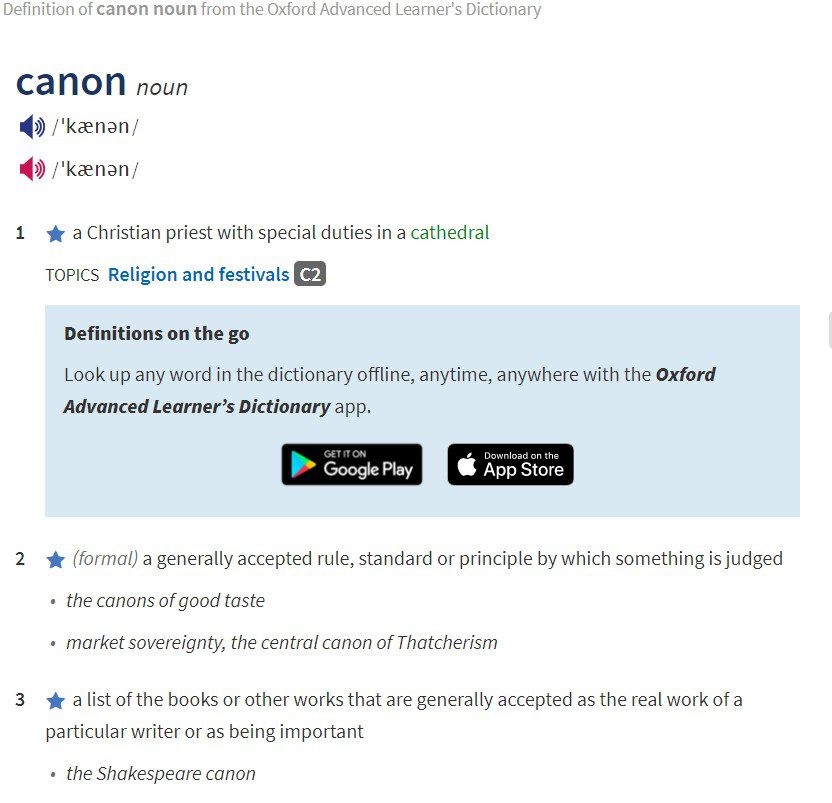
{You may find it helpful to remember the competing authority of definition 1 from the Oxford English Dictionary
- – i.e. Canon So-and-so, Bishop of Rome, London, etc.}
Technically, the HISTORY of the Bible is NOT itself, DOCTRINE, however one cannot fully appreciate the Bible now in print for most anyone without a brief look at how the Canon of Scripture came about.
Since many respected theologians have provided proofs of the authenticity of the Books of the Bible [66 total] included in the teachings of the church, I will highlight just a few dates for your further research if you desire.
Although I use and refer to several sources, if I could suggest one indexed authoritative source for your person answer to questions about the Bible I recommend: https://www.blueletterbible.org/faq/index.cfm
Creeds & the Canon of Scripture
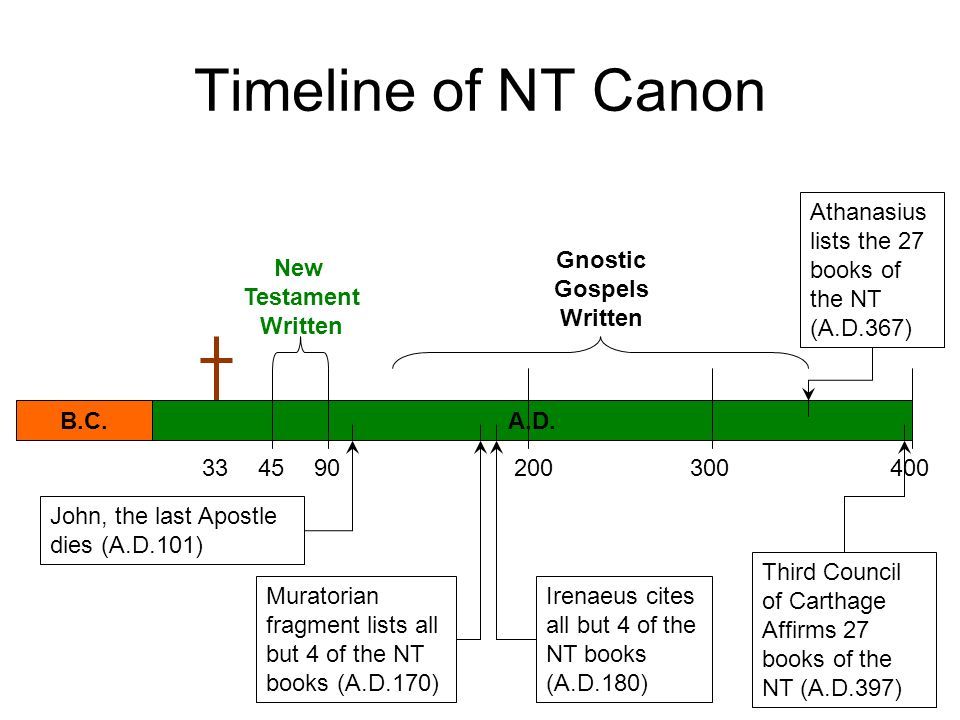
The Biblical Canon
is the collection of scriptural books that God has given his corporate people, which are distinguished by their divine qualities, reception by the collective body, and their apostolic connection, either by authorship or association.
Source: The Gospel Coalition
Authoritative Authors
A final attribute of canonical books is that they are written by God’s chosen agents, his inspired prophets and apostles. Put simply, not just anyone can speak for God; .. prophets and other inspired spokesmen .. it included the apostles, Christ’s authoritative witnesses …
‘We have good historical evidence…‘
A few of the historical events of note which have constantly and consistently affirmed the Authority of God through the Holy Bible.
- ‘The earliest Christian creed is found in the New Testament, which declares, “Jesus is Lord.”’ – R.C. Sproel, Avoiding Theological Anarchy
- A.D. 50 – Council of Jerusalem see Acts 15
- The deity of Christ was at issue at the Council of Nicaea (A.D. 325). In that council the full deity of Christ was affirmed, and Christ, the divine Logos, the second person of the Trinity, was declared to be co-essential and co-eternal with the Father. – See the Nicene Creed.
- The Apostles’ Creed dates to about A.D. 390 in a letter from Ambrose of Milan to Pope Siricius, but its complete current form does not appear until the eighth century.
- Council at Ephesus A.D. 431 confirmed the original Nicene Creed, and condemned the teachings of Nestorius, Patriarch of Constantinople, who held that the Virgin Mary may be called the Christotokos, “Christ-bearer” but not the Theotokos, “God-bearer”.
- In A.D. 451 the Emperor Marcian convened a council of some five hundred bishops at Chalcedon. The Chalcedonian theologians were conscious of deviations from biblical orthodoxy that had plagued the church for over a hundred years an emerged with The Athanasian Creed, honoring Athanasius, the great champion of Trinitarian orthodoxy who died in A.D. 373..
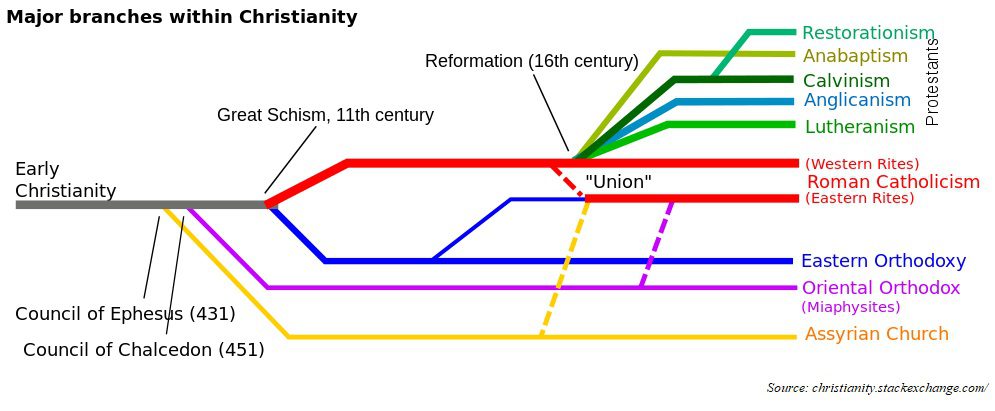
The Great Schism of 1054
‘So on July 16, 1054, the “one, holy, catholic, and apostolic church,” as the Nicene Creed puts it, split. And then there were two.’
Stephen Nichols
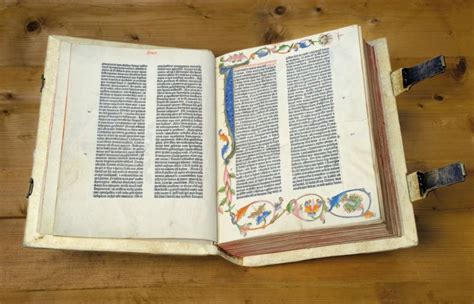
The Protest and Reformation
- A.D. 1521 Diet of Worms, meeting of the Diet (assembly) of the Holy Roman Empire held at Worms, Germany, in 1521, made famous by Martin Luther’s appearance before it to respond to charges of heresy.
Because of the confused political and religious situation of the time, Luther was called before the political authorities rather than before the pope or a council of the Roman Catholic Church.
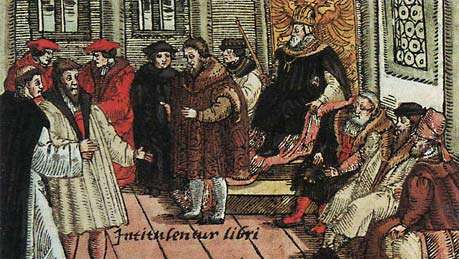
- A.D. 1545 The Council of Trent began sitting in 1545, introducing rigidity in dogma and austerity in morals. The Protestant views of justification by faith alone, the Lord’s Supper, and the propriety of clerical marriage were sharply rejected. All deviation within the Catholic fold was rigidly suppressed.
- London, A.D. 1611 – King James Bible printed in English, after Protestantism had been restored to England.
MORE.. Church Divided / Empire Fallen 2

To be continued...
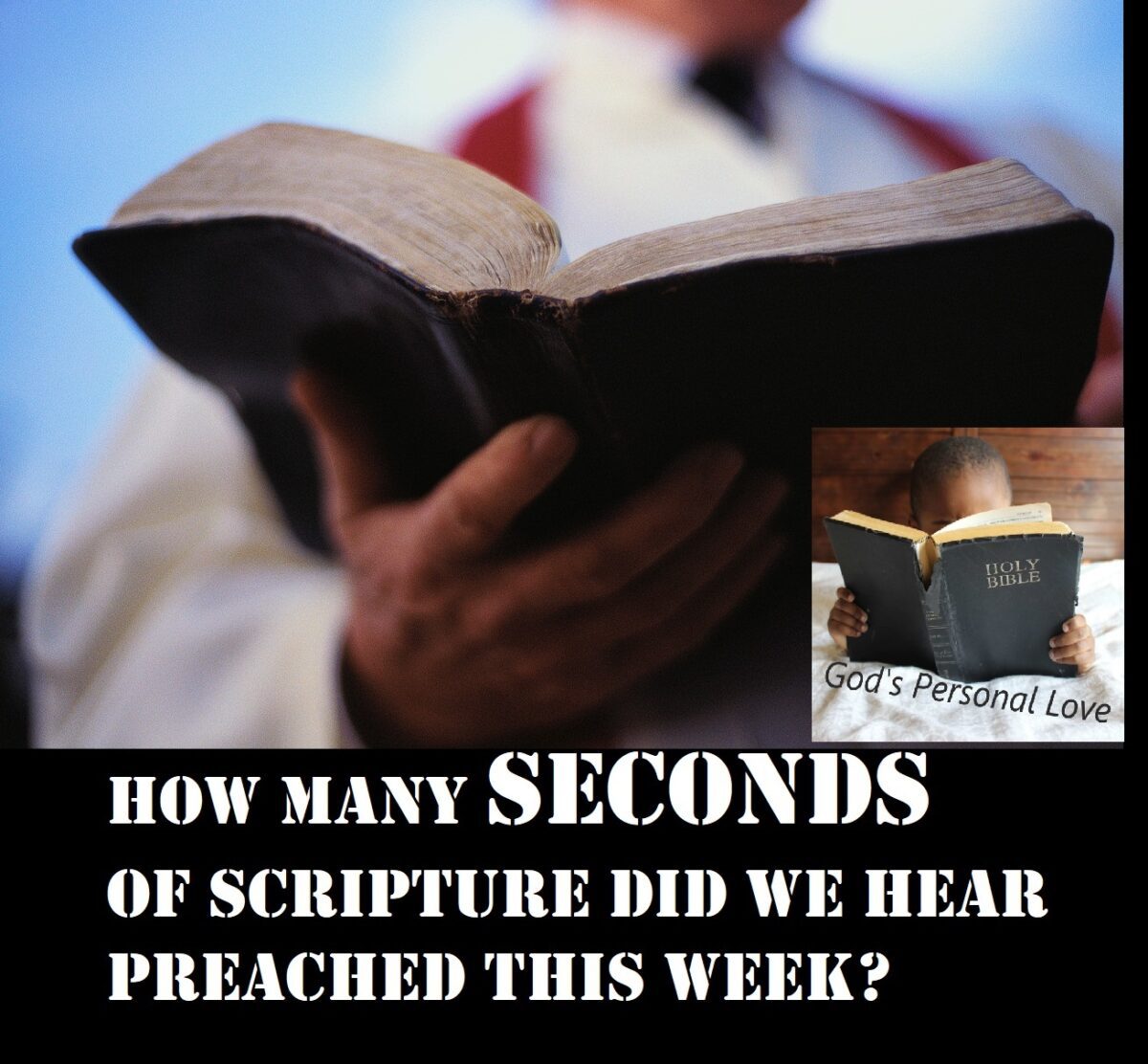

Leave a Reply